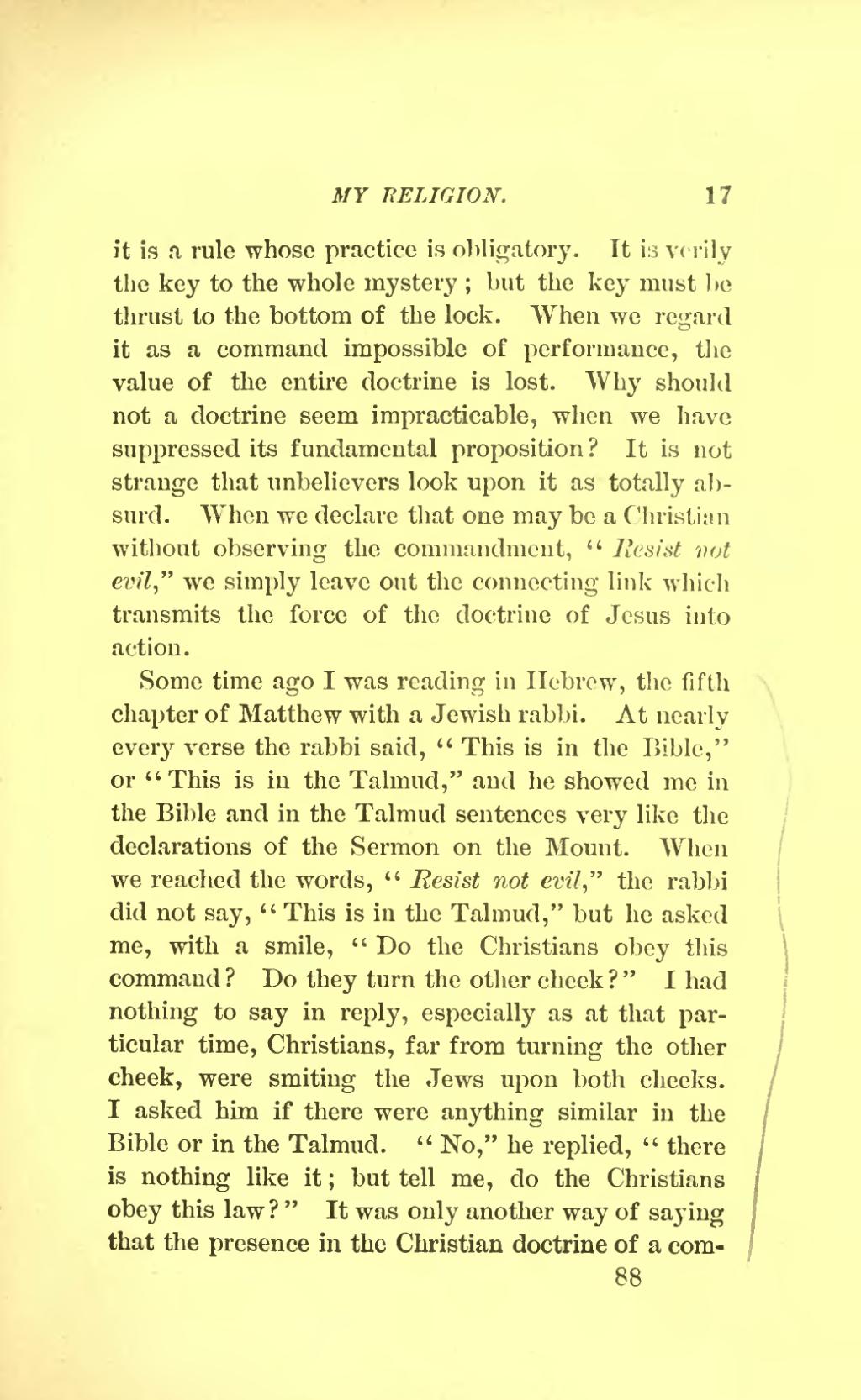it is a rule whose practice is obligatory. It is verily the key to the whole mystery; but the key must be thrust to the bottom of the lock. When we regard it as a command impossible of performance, the value of the entire doctrine is lost. Why should not a doctrine seem impracticable, when we have suppressed its fundamental proposition? It is not strange that unbelievers look upon it as totally absurd. When we declare that one may be a Christian without observing the commandment, “Resist not evil,” we simply leave out the connecting link which transmits the force of the doctrine of Jesus into action.
Some time ago I was reading in Hebrew, the fifth chapter of Matthew with a Jewish rabbi. At nearly every verse the rabbi said, “This is in the Bible,” or “This is in the Talmud,” and he showed me in the Bible and in the Talmud sentences very like the declarations of the Sermon on the Mount. When we reached the words, “Resist not evil,” the rabbi did not say, “This is in the Talmud,” but he asked me, with a smile, “Do the Christians obey this command? Do they turn the other cheek?” I had nothing to say in reply, especially as at that particular time, Christians, far from turning the other cheek, were smiting the Jews upon both cheeks. I asked him if there were anything similar in the Bible or in the Talmud. “No,” he replied, “there is nothing like it; but tell me, do the Christians obey this law?” It was only another way of saying that the presence in the Christian doctrine of a com-
